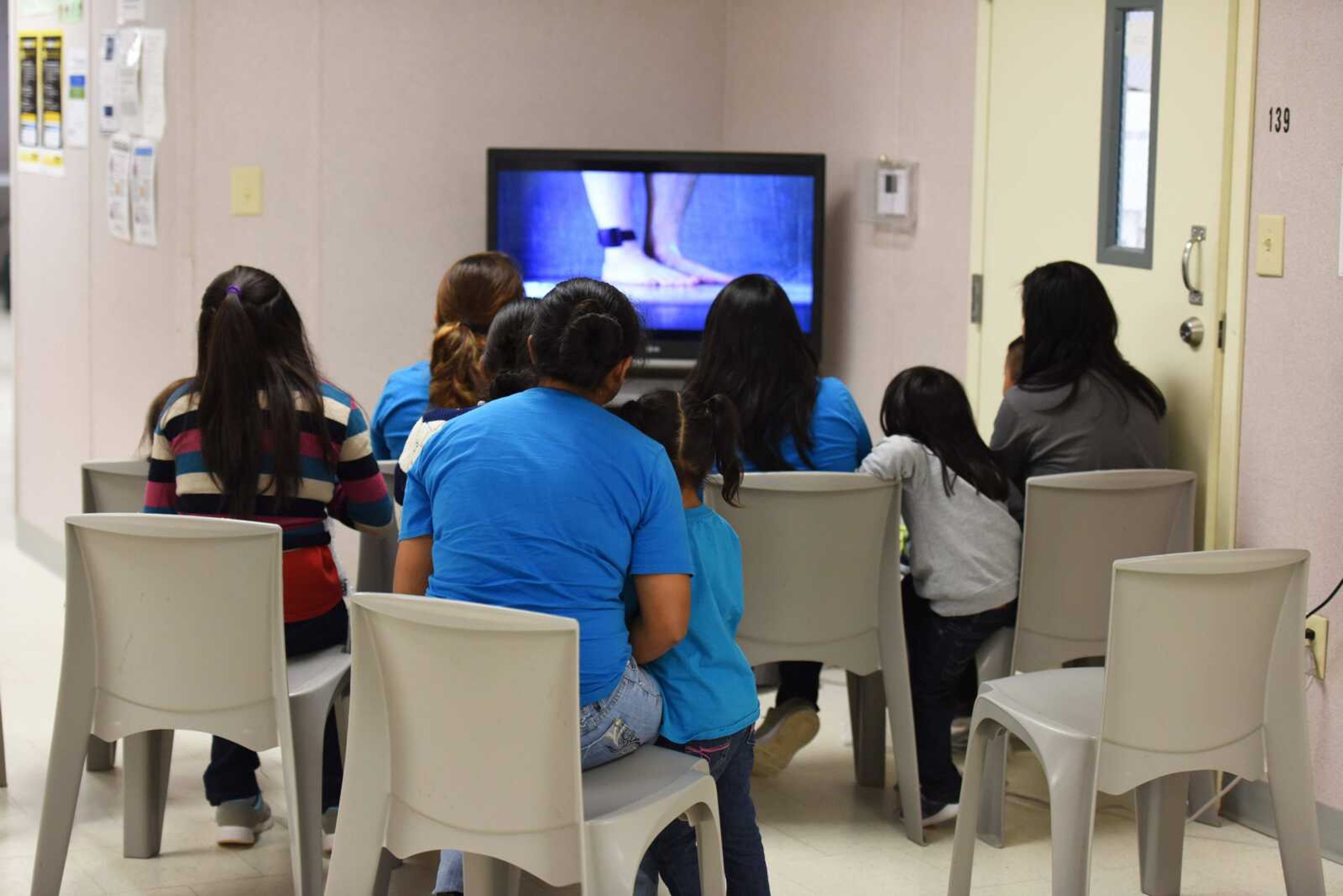New deal keeps open facility detaining immigrant families
HOUSTON -- The U.S. government has quietly reached a new agreement to keep open a 2,400-bed detention facility used to detain immigrant mothers and children, in a lucrative arrangement for a private prison company and the tiny South Texas town where it's located...
HOUSTON -- The U.S. government has quietly reached a new agreement to keep open a 2,400-bed detention facility used to detain immigrant mothers and children, in a lucrative arrangement for a private prison company and the tiny South Texas town where it's located.
U.S. Immigration and Customs Enforcement last month signed a contract with the city of Dilley, where the South Texas Family Residential Center opened in 2014. Dilley signed a contract at the same time with CoreCivic, the private prison operator that runs the detention center, the largest facility of its kind in the U.S. The city released both contracts to The Associated Press last week in response to an open records request.
ICE said it was replacing an arrangement dating to President Barack Obama's administration that the Department of Homeland Security's inspector general criticized this year as violating budget guidelines and wasting money. But the new arrangement has some of the same features the inspector general criticized.
When it opened the facility in 2014, the U.S. was seeing a surge of women and children immigrating from Central America. ICE argued it had an urgent need for family bed space and had to circumvent government standards for contracting, which require a bidding process and extensive reviews.
ICE modified an existing detention agreement with the city of Eloy, Arizona, to include the Dilley facility, 900 miles away. Eloy technically ran the facility, but routed ICE money to CoreCivic, then known as the Corrections Corp. of America.
The inspector general said in a February audit ICE improperly modified the Eloy contract and it should have avoided creating a "middleman" and reached an agreement directly with the company operating the facility. Also, not conducting a bidding process may have led ICE to overpay for services at the detention facility, the audit said.
ICE spokeswoman Nina Pruneda said Tuesday the agency created the agreement with Dilley in response to the inspector general's concerns about Eloy and all other terms of the contract will remain the same.
ICE will pay Dilley about $13 million a month for the cost of detaining immigrants at the facility. Dilley will then send almost all of that money to CoreCivic, minus administrative fees adding up to an estimated $438,000 a year.
That's a significant windfall for a city with a population of about 4,000 people with an annual budget of $2.1 million. Dilley already collects annual revenue-sharing payments from CoreCivic, with $200,000 due in December.
CoreCivic will continue operating a facility generating $171 million in revenue last year.
ICE retains use of a facility providing most of the 3,000 beds it has in family detention. That space is particularly critical as President Donald Trump's administration tries to detain immigrant families for longer and waive restrictions on the detention of children.
But immigrant advocacy groups say the contracts preserve an arrangement in which a local city's oversight is a technicality letting ICE and CoreCivic to operate without public scrutiny.
Claudia Valenzuela, director of the National Immigrant Justice Center's detention project, said the city, ICE and CoreCivic should explain how they reached the agreement. She questioned whether Dilley would actually be overseeing the facility given the money it is receiving from CoreCivic.
"I don't have too much faith ... that there's going to be a whole lot of pushback," she said.
Connect with the Southeast Missourian Newsroom:
For corrections to this story or other insights for the editor, click here. To submit a letter to the editor, click here. To learn about the Southeast Missourian’s AI Policy, click here.








